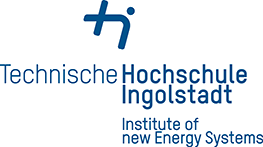Prof. Eng. S. Simiyu Sitati
Brief Overview About Myself
I am the current Dean, School of Engineering at Moi University, Kenya. I am an Associate Professor of Electrical Engineering (Power System). I hold a PhD. and MSc. degrees from National Research University – Moscow Power Engineering Institute.
My research interests are in electrical power system security and renewable energy sources and utilization.
Lessons Learnt From The Workshops at HNU and THI
I was priviledged to attend three workshops at Hochschule Neu-Ulm University of Applied Sciences (HNU) and Ingolstadt University of Applied Sciences (THI) in the months of October, November and December 2018, organised by the two Universities and sponsored by DAAD. During the workshops, we were exposed to the following:
- the structure of education in general in Germany
- the difference between a traditional University and a University of Applied Science in Germany,
- the curricula/programmes structure at HNU and THI
I observed that:
- the curricula are tailor-made to suit the industry needs
- the professors have direct link with the industry and have specific tasks they work in collaboration with the industry
- it is mandatory for a student to be attached to the industry for a specified period of time
- while on attachment, the student is supposed to work on specific tasks, which are ultimately assessed for the student to qualify,
- the industry is passionate and funds research activities at the universities
Moi University, since its inception, has been having interactions with the industry, especially during the student industrial attachment period, commonly referred to as the third semester. The students are attached to the industry for a total period of 24 weeks in the entire period of study. Lecturers assess the students four times during the attachment period. The following are the comparative observations of the activities/relationship:
- the training objectives in Kenya and Germany are similar
- the industry involvement in training is minimal in Kenya, while it is high in Germany
- Universities of applied Sciences in Germany require that a Professor Should have had at least five years industrial experience prior to recruitment to the University, while in Kenya, this is not a requirement. However, the requirement in Kenya demands that at least 3 members of staff should be registered professional engineers.
Intentions After The Workshops
After attending the workshops at HNU and THI, the following are the intentions that we set forth to accomplish over time, both at individual and Institutional level:
1. Intentions concerning applied education
-
- Sharing the lessons learnt with other faculty members
- Incorporating the lessons learnt in the workshops in curricula review
- Review of our industrial attachment and internship programmes
- Establishing academic exchange programmes with universities of applied sciences such as THI and HNU
- Restructuring university-industry relationships
2. Intentions concerning applied research
-
- Initiating university-industry joint research projects
- Coming up with a proposal for a network project with other universities
- Review of the university knowledge and technology transfer strategy internally and externally
- Re-evaluation of the university extension and outreach programmes to enhance their impact
- Developing strategies to enhance and strengthen outreach programmes
Activities After The Workshops
The activities of the Workshops were a good eye opener to the participants. The members, therefore, involved themselves in information dissemination activities, which were both formal and informal. There was informal sharing of experiences gained from the workshops with colleagues. Next, the team organised a two-day workshop at Moi University. The first day targeted academic staff at Moi University from the Schools of Business and Economics; and Engineering. The second day targeted industrial partners and business world. The deliberations generated a lot of interest, resulting in the decision to organize another workshop, at a later date, to chart a way forward. The University met the costs for the workshop.
The School deliberated on the conduct of industrial attachments at the School of Engineering. It was noted that the procedures and guidelines needed to be reviewed to align them with the current times. A committee was therefore formed to make a draft of new guidelines.
Efforts to acquaint academic staff to Industry are on-going. The attachments that have already been conducted have exposed the staff to the on-goings in the industry. A few research areas have been identified.


Leave A Comment